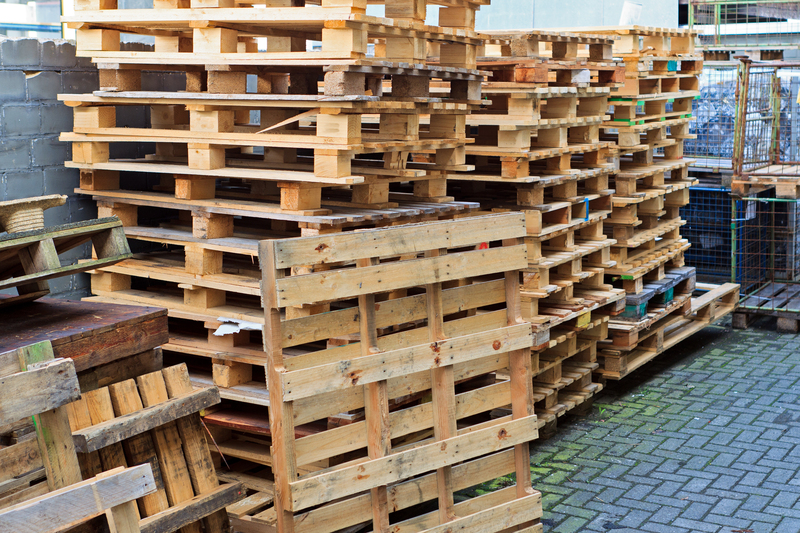Declutter and Destress: The Benefits of Tidiness
The modern lifestyle can often feel overwhelming, filled with endless to-do lists, digital distractions, and accumulating clutter. In the quest for more organized and meaningful lives, many people are turning to the principles of tidiness and decluttering. But what are the true benefits of a tidy environment? How can cleaning up our physical and mental spaces help reduce stress and improve our overall well-being? Let's explore the multiple advantages of decluttering and how embracing tidiness can transform your everyday life.
Understanding the Concept of Tidiness
To declutter is more than just throwing out unused items. It's a conscious effort to create a peaceful, functional, and inspiring environment--a space that serves you rather than overwhelms you. Whether you're looking to tidy up your home, workspace, or even your digital life, the act of organizing and simplifying your surroundings comes with considerable psychological and practical rewards.
What Does It Mean to Declutter?
- Eliminating: Removing unnecessary or unused items from your spaces.
- Organizing: Arranging possessions in an orderly manner.
- Simplifying: Maintaining only what you need and what brings you joy.
The Link Between Tidiness and Mental Health
Numerous studies show a direct connection between clutter and elevated levels of cortisol, the stress hormone. When you walk into a cluttered room, your brain is unconsciously reminded of unfinished tasks and chaotic surroundings, resulting in feelings of anxiety and fatigue. In contrast, tidiness offers a visual cue for calm, control, and accomplishment.

The Psychological Benefits of Decluttering and Tidiness
1. Reduced Stress and Anxiety
A clutter-free space encourages a clutter-free mind. When your home or office is tidy, you're less likely to feel overwhelmed by your surroundings. Visual noise such as scattered papers or disorganized closets can cause unnecessary mental distractions. Creating order effectively reduces background anxiety, giving your mind a sense of relief.
2. Improved Focus and Productivity
When you declutter your space, you also remove distractions that can interrupt your workflow or concentration. This is particularly crucial for those working from home or juggling multiple tasks. With less visual clutter, your brain finds it easier to process information, stay on track, and maintain higher productivity levels.
3. Boosted Mood and Well-being
A tidy and organized environment is naturally more inviting and pleasant. Walking into a clean room can instantly boost your mood and create a sense of accomplishment. Being surrounded by items you love and use regularly fosters positivity and well-being, making everyday life more enjoyable.
4. Enhanced Creativity
While some may argue that creative minds thrive in chaotic environments, studies show that excessive clutter often inhibits creativity by overwhelming the senses. Decluttering your environment gives your mind the freedom to explore new ideas without being distracted by unnecessary stimuli.
5. Better Sleep Quality
Your bedroom is meant to be a sanctuary. Unfortunately, piles of laundry or stacks of unread books serve as visual stressors that can make it difficult to relax and fall asleep. Streamlining your sleeping space can significantly improve your nightly rest, as your brain associates tidiness with tranquility.
The Physical and Practical Benefits of an Organized Space
6. Efficient Use of Time
A tidy environment saves precious time. How much time have you wasted searching for your keys, the remote, or an important document? When everything has its place, you spend less time looking for things and more time enjoying your day. You'll find routine tasks much easier and quicker.
7. Enhanced Safety and Cleanliness
Cluttered spaces can be dangerous, causing trips and falls or making it challenging to keep surfaces clean. By maintaining order, you reduce safety hazards and make it easier to keep your home or office hygienic. This is particularly important for those with children, pets, or allergies.
8. Financial Benefits
Maintaining tidiness can also contribute to better financial health. With less clutter, you're less likely to buy duplicate items or forget about things you already own. Selling or donating unused items can provide a little extra income or goodwill. Plus, learning to value quality over quantity fosters a healthier approach to consumerism.
Decluttering as a Path to Mindfulness
The process of decluttering invites you to practice mindfulness, a state of active, open attention to the present. Sorting through your belongings requires you to make intentional decisions: Does this item serve a purpose? Does it make you happy? Letting go of unnecessary possessions allows you to cultivate gratitude for what you choose to keep.
How Decluttering Enhances Mindfulness:
- Encourages Reflection: Assessing your belongings helps clarify what truly matters to you.
- Reduces Distractions: A minimal environment centers your focus on the present moment.
- Supports Intentional Living: Mindfully choosing what remains fosters gratitude and purpose.
Practical Steps to Declutter and Create a Tidy Sanctuary
Step 1: Start Small and Be Consistent
Decluttering can feel daunting if you try to tackle everything at once. Instead, start with a single drawer, shelf, or closet. Consistency is key: dedicate 10 to 15 minutes daily to organizing a specific area. Progress will add up over time.
Step 2: Categorize and Sort
Separate items into categories such as "keep," "donate," "sell," and "discard." This makes decision-making easier and prevents items from getting shuffled or saved by default. Apply this strategy to physical, digital, and even emotional clutter.
Step 3: Implement Simple Storage Solutions
Invest in practical storage solutions such as baskets, shelves, or drawer organizers. Label boxes and use clear containers to make it easy to locate what you need. Prioritize accessibility for the items you use most often.
Step 4: Maintain Regular Tidying Habits
Once your space is organized, develop daily or weekly tidying habits. Simple actions like making your bed every morning, putting things away after use, and doing a quick nightly reset ensure that clutter never gets out of control.
Step 5: Digital Decluttering
Digital clutter--such as unnecessary apps, duplicate photos, and overflowing email inboxes--can be just as stressful as physical mess. Regularly clean up your desktop, unsubscribe from unwanted email lists, and organize digital files to streamline your online life.
Decluttering and Tidiness at Work
An organized workspace is essential for productivity and job satisfaction, whether at home or in the office. Decluttering your work area not only saves time by making it easier to locate files and supplies, but also fosters a professional mindset and boosts creative thinking.
- Keep only essentials on your desk and store rarely used items out of sight.
- Embrace digital organization by sorting emails and computer files into labeled folders.
- Take regular breaks to tidy and reset, especially after completing a big task.
Decluttering as a Family or Community Activity
Decluttering can be a shared activity that brings families and communities closer together. Involving children in tidying teaches valuable life skills and respect for belongings. Donating unused items to local charities strengthens community ties and helps those in need.
Common Decluttering Challenges (and How to Overcome Them)
- Attachment to items: It's natural to feel emotionally connected to certain possessions. Focus on keeping items that evoke positive memories and serve a real purpose.
- Lack of time: Short, consistent decluttering sessions work better than marathon cleaning days. Make tidying a part of your daily routine.
- Decision fatigue: When struggling to make decisions, use the "one-year rule": If you haven't used it in a year, it's probably time to let it go.

How Decluttering and Tidiness Support Sustainable Living
Living with less means consuming less. By choosing quality over quantity and rehoming or recycling unwanted items, you reduce waste and your carbon footprint. Tidiness aligns with sustainable living values, promoting a lifestyle that benefits both the individual and the planet.
- Repurpose and recycle instead of discarding.
- Donate to charity to extend the life of useful goods.
- Buy consciously and avoid impulse purchases.
Conclusion: Transform Your Life Through Decluttering and Tidiness
The benefits of tidiness and decluttering extend beyond clean countertops and color-coded shelves. An organized environment supports better mental health, sharper focus, heightened creativity, and a sense of calm. By letting go of clutter, you invite tranquility, efficiency, and joy into your life.
Make decluttering a regular habit, and you'll discover that the journey toward a more orderly life is both liberating and empowering. Whether you tidy a single drawer or transform your entire home, every step you take brings you closer to a happier, healthier, and more mindful way of living. Embrace the power of tidiness--declutter and destress for a better you!